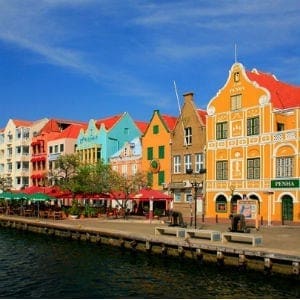 Much ado about nothing? That’s what the latest Hotel Guest Survey found when examining the impact of hotels brands’ “guest loyalty” rates on booking platform trends.
Much ado about nothing? That’s what the latest Hotel Guest Survey found when examining the impact of hotels brands’ “guest loyalty” rates on booking platform trends.
Hardly an industry conference has gone by during the last 18 months without a healthy panel debate over the effectiveness of loyalty rates on changing consumer booking behaviour. And while we certainly won’t settle that debate here, we’d be remiss to not examine the data from the latest BDRC Hotel Guest Survey.
Comparing booking platform data trends from Q3 of 2015 through Q3 of 2017 suggests that there’s been no material shift in direct bookings: both brands and OTAs are seeing roughly the same booking share percentages today that they saw in Q3 2015. And what the big brands might find most concerning is that this holds true for both business and leisure segments.
In the early part of 2016, the two Goliaths of the hotel industry, Marriott and Hilton, launched aggressive campaigns targeting consumers to book directly to find the lowest prices. While the discounts ranged from 2-10%, the average hovered around 4% [1]. Were these expensive campaigns all for nought? The data suggest they might have been.
Illustrated in Figure 1 below, in Q2 of 2016, at the height of the “Book Direct” campaigns, brands did see a small shift of leisure travellers to the direct channel and a shift away from OTAs.
“Looking at our Hotel Guest Survey results, these ‘book direct’ campaigns did have an impact in Q2-16, but OTA market share was back at previous levels by Q3-17”, commented Matthew Petrie, President of BDRC Americas.
Figure 1: Booking platform trend (2015 – 2017): Leisure results
However, as these discounts became the norm towards the end of 2016 and in 2017, this trend reversed, and the book direct platforms reverted close to where they began in Q3 of. From the second quarter of 2016 through the end of the 2017 survey period, direct business actually dropped from Q2 ’16 to Q3 ’17, while the OTA segment increased. Is this data conclusive? That’s still up for debate.
We should note, the business trend was slightly less pronounced, which should come as no surprise as most of the brands’ marketing campaigns were aimed at the weekend traveller. One thing brand execs may find concerning is the degradation of the hotel review site platform share (i.e. TripAdvisor) towards the end of 2017 was seemingly recaptured by the OTAs and not by the brands.
Digging into the leisure trends a little deeper, we should ask ourselves: have we been wrong about the assumption that the ‘lower price carrot’ would lure customers? Hotel execs have long treated non-direct consumer segments with slight disdain and have treated direct bookers as their cash cows. They believe OTA travellers are less valuable and mostly book their economy brands with lower ADRs. Are hotel execs wrong about OTA customers? Were OTA consumers booking that path for convenience and not for the price? Figure 2 suggests OTA customers may be more valuable than the execs believed.
Figure 2: Booking platform estimates of value – usual hotel tier
“In 2017 hotel tier usage among leisure direct and OTA platform bookers were similar, although direct guests were slightly more likely to book within the budget tier while OTA guests were more likely to book upper full-service tiers, which may surprise some in the industry,” Mr Petrie added.
While within the margin of error, at worst leisure travellers are booking the UFS and Luxury hotel brand tiers at an equal or higher rate than their direct booking counterparts. At best, OTA customers tend to be booking the upper tier segments more frequently than direct bookers. What comes as no surprise is that business travellers, when presumably not spending their own money, book more in the UFS and luxury tiers but not when travelling for leisure.
If the myth of the ‘cheap OTA’ consumer continues to look less and less true, the next iteration of brand execs might have reason to be worried. At the very least, they should be concerned that discounted loyalty rates have caused no material shift in business and have diluted their hotels’ ADR. Stay tuned, the next Hotel Guest Survey results are due out in September of this year.






























